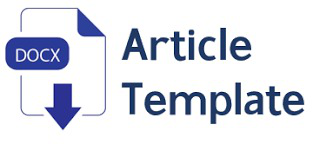How Could Judges Ignore the Audi Et Alteram Partem Principle in a Criminal Case Trial?
DOI:
https://doi.org/10.14421/sh.v12i1.2943Keywords:
The audi et alteram partem principle, Judge's Decision, Criminal Case, Judicial Power.Abstract
In a judge's decision, legal considerations aim to delve into the facts revealed at trials based on the audi et alteram partem principle, which must exist and become a foundation. The philosophy of the audi et alteram partem principle is essentially the values of justice and balance. In applying the audi et alteram partem principle in a criminal case, although the judges have judicial power, they should consider the evidence and facts that are not only submitted by the public Prosecutor but also have to consider the evidence and facts submitted by the defendant. In decision Number 123/Pid.B/2022/PN Yyk, the panel of examining judges rejected the explanation of the witness a de-charge which was not based on a clear reason, so it was felt that the panel of judges examining the case did not consider the explanation of the witness which was mitigating for the defendant and violated the principle of audi et alteram. Therefore, this study aims to elaborate on how the judicial panel examined the case by applying the audi et alteram partem principle. To answer these legal issues, this study uses combined research methods of normative and empirical data with data collection methods by conducting interviews and literature reviews as well as using descriptive qualitative data analysis methods. The result of this study showed that the judicial panel examining case number 123/Pid.B/2022/PN Yyk did not consider the audi et alteram partem principle for the judgment because the judges were not balanced by only considering the prosecutor's explanation and rejecting the testimony of the defendant's witnesses and ignoring material truth of defendant's proof.
References
Almitra, Iffah, (2013), ‘Audi Et Alteram Partem Dalam Perspektif Undang-Undang Nomor 49 Tahun 2009 Tentang Peradilan Umum Dan Herziene Inlandsche Reglement (Hir)’, Jurnal Verstek, Vol. 1 No. 3, 13–23, https://jurnal.uns.ac.id/verstek/article/view/38816/25694
Anton Widodo dkk., (2022), ‘Ratio Decidendi Hakim Dalam Vonis Penjara Terhadap Korban Penyalahgunaan Narkotika Pada Putusan No.797/Pid.Sus/2020/PN.KPN’, Jurnal Civic Hukum, 7.2 p. 204, https://doi.org/10.22219/jch.v7i2.22116
Atmadja, I Dewa Gede, Filsafat Hukum: Dimensi Tematis Dan Teoretis, Malang, Setara Press, 2013.
Friedman, Lawrence M, Legal System, The: A Social Science Perspective , Russell Sage Foundation, 1975. http://www.jstor.org/stable/10.7758/9781610442282
Fuady, Munir, Teori Hukum Pembuktian Pidana Dan Perdata, Bandung, Citra Aditya Bakti, 2006.
HAM, Deklarasi Universal, ‘Deklarasi Universal Hak-Hak Asasi Manusia’, 4.1 (1948), 133–68
Hidayat, Asep Syarifuddin, (2019), ‘Penerapan Asas Audi Alteram Et Partem Pada Perkara Judicial Review Di Mahkamah Agung’, Mizan: Journal of Islamic Law, 3.1 37, https://doi.org/10.32507/mizan.v3i1.408
Indonesia, Mahkamah Agung Republik, ‘Putusan PN Yogyakarta 123/PID.B/2022/PN YYK’, Publikasi Dokumen Elektronik
Putusan Seluruh Pengadilan Di Indonesia, 2022 https://putusan3.mahkamahagung.go.id/direktori/putusan/zaed61d5c94583929f42323233303335.html
Indonesia, Pemerintah Republik, ‘Undang-Undang Nomor 8 Tahun 1981 Tentang Hukum Acara Pidana’, Republik Indonesia, 1981, 773–87
Inlandsche Reglement, ‘Het Herziene Indonesisch Reglement’, Angewandte Chemie International Edition, 6(11), 951–952., 1967, p. 2009
Oksidelfa Yanto et al., (2022), Can Judges Ignore Justifying And Forgiveness Reasons For Justice And Human Rights? Sriwijaya Law Review, Volume 6 (1) p. 126, http://dx.doi.org/10.28946/slrev.Vol6.Iss1.1054.pp122-142
Republik Indonesia, ‘Undang-Undang Republik Indonesia Nomor 48 tahun 2009 Tentang Kekuasaan Kehakiman
Lembaran Negara Republik Indonesia Nomor 5076, 2009,
Rinsofat Naibaho dan Indra Jaya M. Hasibuan, (2021), ‘Peranan Mahkamah Agung Dalam Penegakan Hukum Dan Keadilan Melalui Kekuasaan Kehakiman’, Nommensen Journal of Legal Opinion, 2.2, p. 208, http://ejournal.uhn.ac.id/index.php/opinion
Sufiarina, Sufiarina., et al., (2022), The Organization of The General Meeting of Shareholders Based on Court Determination from The Perspective of Shareholder Rights’ Protection, Padjadjaran Jurnal Ilmu Hukum (Journal of Law) (PJIH), Vol 9, No 2, p.170-190, https://doi.org/10.22304/pjih.v9n2.a2
Unas, Sandro, ‘Kajian Yuridis Terhadap Bentuk Putusan Hakim Dalam Tindak Pidana Korupsi’, Lex Et Societatis, VII.4 (2019), 58–65
UUD, 1945, Undang-Undang Dasar Negara Republik Indonesia 1945, Naskah Sesuai Lembaran Negara Republik Indonesia, 1945, LXXV








